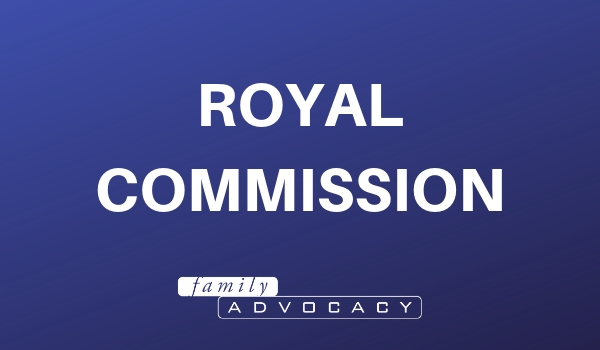The first hearing of the Disability Royal Commission, held in Townsville and focused on education, saw many witnesses giving evidence supporting the benefits that Queensland’s Inclusive Education Policy is bringing to Queensland's schools. This detailed policy, which was introduced last year, is guiding this state's over 1200 schools to think through the myriad of barriers that they need to overcome in supporting the inclusion of students with disability.
In contrast, the NSW Department of Education’s Disability Strategy, which is geared towards addressing some of these significant issues in NSW Schools, lacks clarity on a number of levels. “The major breakdown occurs due to the reluctance of the Department to adopt a similar policy document to Queensland across NSW Schools. Without this policy, children with disability will continue to be subjected to poor practices leading to abuse, neglect and discrimination,” said Cecile Sullivan Elder, Executive Officer of Family Advocacy NSW.
Over 50% of the calls for advocacy advice that Family Advocacy NSW receives relate to education and the many issues that students with disability are experiencing with the current NSW education system. This is a 30% increase over that last two years. Many enquiries relate to the matters that the Disability Royal Commission is currently investigating, but families are often reluctant to make a formal complaint because of the possibility that this would make their child even more vulnerable to exclusion, abuse and neglect.
“Some families that come to us have been turned away from as many as 10 schools before finding a school that will welcome their five-year-old child,” said Ms Sullivan Elder. “Many parents see no other option than to send their children to segregated settings such as support units and special schools, where there is even a higher likelihood that they will experience forms of abuse and neglect.”
“Thanks to the policy, parents in Queensland are able to make a more effective case for their child with disability to attend their local public school and be included in the regular class,” said Ms Sullivan Elder. "However, the NSW Government remains reluctant to acknowledge over 60 years of evidence and practice that demonstrate the positive impacts for all students when they learn together in the same classroom."
It is essential that the Disability Royal Commission holds a hearing specific to education in NSW in an attempt to highlight the many issues children and young people continue to face in NSW schools, as well as the urgent need for an Inclusive Education policy in this state.

